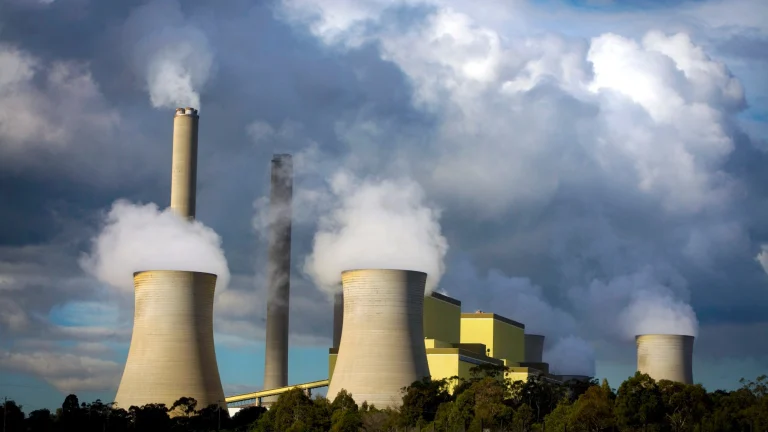Climate campaigners in the UK have urged ministers to make steeper cuts in the UK’s greenhouse gas emissions after the government’s statutory adviser on the climate gave its verdict on new targets.
The Climate Change Committee, which is known to advise the government, has written to Ed Miliband, the energy secretary, to advise cuts of 81% in the UK’s emissions, compared with 1990 levels, by 2035, if emissions from aviation and shipping are excluded.
Miliband now faces the choice of whether to follow the committee’s advice in setting the UK’s new international commitment under the Paris agreement at a forthcoming UN climate summit. A cut of 81% as an international target would be broadly in line with the UK’s existing domestic carbon budgets for the 2030s, which are also set with advice from the CCC and are intended to deliver net zero emissions by 2050.
But campaigners urged the government to go further in order to demonstrate global leadership and spur innovation and a low-carbon economy. Mike Childs, the head of policy at Friends of the Earth, said: “With climate change spiralling dangerously out of control, the recommended 81% cut should be seen as the very minimum carbon reduction target the UK government should commit to. Ramping up ambition to make even deeper cuts in practice would show real leadership in global efforts to avert the worst of climate breakdown.”
Read also: Scientists say Sliver of cool surface water 2mm deep helps oceans absorb CO2
Catherine Pettengell, the executive director of Climate Action Network UK, said: “[This] should be the floor, not the ceiling, of the UK’s ambition and action. A more ambitious and fair target could be achieved if the UK brings its full economic and political will to the table.”
Meeting the new target will be a stretch. The UK is far away from meeting the international target in place of a 68% reductions in emissions by 2030, which was set by Boris Johnson before the UK hosted the Cop26 climate summit in Glasgow in 2021, according to analysis by Friends of the Earth.
Doug Parr, the policy director at Greenpeace UK, said: “True leadership means the government must also set out tangible plans to deliver on its 2035 target.” He called for the fulfilment of Labour’s promise to end new oil and gas licences, at least triple renewables and double energy efficiency rates by 2030, and support workers to transition away from polluting industries.
Another key question for Miliband, in drawing up the UK’s international target – known as a nationally determined contribution, or NDC, under the Paris agreement – is how to account for emissions from international aviation and shipping to and from the UK.
These emissions are now included in the UK’s domestic carbon budgets, but were not explicitly in the 2015 Paris agreement, and previous international pacts, because of the difficulty of apportioning the emissions to particular countries. Some campaigners argue that aviation and shipping are implicitly covered by the Paris agreement, but there is disagreement over this and most countries exclude them from their NDCs.
Story was adapted from the Guardian.
